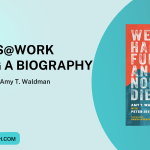Discern Your Best Writing Habits
March 28, 2023
Note From Rochelle
Dear Writers,
This spring, I have two very helpful tools to help you overcome blocks and write. The first is our Writing Accountability Group. We begin April 27 and meet every other week. This small, intimate gathering will help you examine your own writing practices and stay accountable to getting stuff done. Learn more here: WRITING GROUP.
The second is the class Overcoming Procrastination. I now see how so many of the challenges we label as “discipline” are really about dealing with emotion. With the help of Liesel Teversham, an expert in EFT Therapy, we will help you overcome your emotional and intellectual blocks and write. Here’s the link to sign up: OVERCOME PROCRASTINATION.
Today’s tip is an excerpt from my book, Level Up. Lately, I’ve been setting up practices to help my back heal. In the process, I remembered how important it is to examine my own best writing practices. Today’s tip will help you do that.
Happy writing,
Rochelle, the Write Now! Coach
Discern Your Best Writing Habits
By Rochelle Melander
After coaching and teaching people about writing books for many years, I’ve noticed that every person has unique practices to support their work.
One writer I met made it a daily practice to copy a work of poetry or the chapter of a favorite book into her journal before each writing session. This practice eased her into writing and inspired her creativity. Aaron Sorkin, the creator of The West Wing and The Social Network, paces and acts out his own dialogue. One of my colleagues writes the first draft of her novels by hand in a notebook. She uses the same composition book for character sketches and plot notes.
Each of us has habits that support our productivity. Our best practices may come from our education, our day job, or our work as a writer. And we may not even be aware of what we do. No more! In this quest, you’ll detect your best practices.
The Quest
You will need your journal for this quest.
Step One: Collect the Data
Select two-three of your most productive work sessions. If you have difficulty remembering these, review your calendar for examples. Or look at some of your finished projects—what were your most productive sessions leading up to completing those projects? You can also look at your writing sessions for school or work, work sessions for other creative projects, or journaling.
In your journal, list each session. Write only on the left side of the page, leaving a blank column on the right side of the page. Leave enough room for each entry so that you can write a short description of what happened and answer the following questions:
- What project were you working on?
- Was the writing project for someone else or yourself?
- How close were you to the deadline?
- When were you working?
- Where were you working?
- What was going on externally? (What was happening around you?)
- What was happening internally? (What were you feeling physically and emotionally?)
- What did you accomplish?
- What habits, practices, and tools helped you do your work?
- What did you have difficulty accomplishing and what did you do that helped you overcome the challenge?
- What distracted you and how did you overcome distractions to move forward?
Step Two: Decode the Data
You now have information about what works for you. You may even have an intuitive sense of what your ideal working situation looks like. Now it’s time to see what the data has to say.
Review the records of your most productive work sessions. Use a colored pencil or marker to underline concrete or key information for each question above.
Use the right column to note words and information that summarize what you discovered while underlining. Comments might include, I produce the best work in the morning! or Walking helps me write better!
When you’re done, make a list of the situations and practices using the categories in the example below. You can also add your own categories.
Game Play Tips
- Use the above information to create a personal how-to guide for writing well—a handbook of best practices. Don’t overthink this! Create a quick list of your top tools or practices and post it where you can review it and use it regularly.
- If you have difficulty remembering your best writing sessions, consider keeping a writing journal. After each writing session, note what worked and what didn’t work. Reflect on some of the prompts above, collecting information on the places, habits, and practices that work best for you. After a few of these sessions, review them and create your list of best practices.
- If your inner critic shows up and reminds you of all the times you failed at writing, the sessions that didn’t work, and the projects you haven’t finished—take notes. You might create a second list of “practices to avoid.”
For the Win
Hopefully this quest helped you see what practices work best for you. Your personal “how-to” guide is a work in progress. You can change it whenever you want. As you learn what works for you, adapt your guide.















